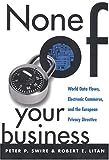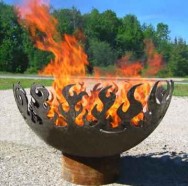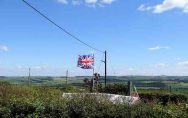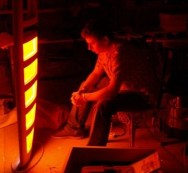
A day in the life of snoops and corporate marketers
Your every move is diced and dissected, repackaged and resold by electronic spies embedded in all our lives
Auto Amazon Links: No products found.

Your every move is diced and dissected, repackaged and resold by electronic spies embedded in all our lives
Auto Amazon Links: No products found.

Incentive program develops, while in Texas, techniques for for sharing scarce water
Auto Amazon Links: No products found.

The preparedness marketplace is full of canny salespeople – These are some of them
Auto Amazon Links: No products found.
As our incomes shrink, an off-grid life becomes the only viable option for keeping our independence and self-respect
Auto Amazon Links: No products found.
Typical lighting bill can be cut by 75%
Auto Amazon Links: No products found.
This December will be 4 years for us living 100% off-grid, I can tell you it’s been quite the adventure, my only regret is that we didn’t do this earlier. Let me recap what we have been doing these 4 years…
Auto Amazon Links: No products found.

They look great but that homey glow real fires produce sends heat right up the chimney as the fire sucks warm air from the rest of the house.
“Ninety-five percent of the heat is lost,” said Prof Kevin Eigel, who studies energy use in homes. “The rest of the house gets cold even while it’s warm right around the fireplace.”
Fortunately, homeowners have more options than ever to get more use and heat from the fireplace.
Options range from a simple blower system that costs less than $1,000 to wood-burning inserts that can cost more than $5,000 but can heat an entire home.
Auto Amazon Links: No products found.

lawsuits against National Grid and Verizon over outrageous charges for moving utility lines and poles
Auto Amazon Links: No products found.

With average real incomes heading down and average fuel bills going up, the typical British household will be in “fuel poverty” by the 2015 if energy bills stay on their current path.
Fuel prices have almost doubled as a share of median income since 2004, and an official target to spend £200bn on new infrastructure by 2020, mainly on the so-called Smart Grid, will intensify the price rises.
Next month, the average annual bill for a “dual fuel” (Gas and electric) customer will reach £1,293, or 6 per cent of median household income, compared with 3.3 per cent in 2004.
Auto Amazon Links: No products found.
Ask for everything, expect everything
Auto Amazon Links: No products found.

In 2010 Off-Grid.net estimated there were 100,000 living off the grid in the UK. We think it has increased since then to 200,000, mainly due to the increase in mobile off-grid living – in vans, boats cars and buses. But also due to a growth in the number of off-grid communities and the increasing size of each of those off-grid communities.
There are many reasons for living off-grid – the most common is wanting to live an ecological life – reducing your carbon footprint- – but there are also survivalists and preppers who think they are protecting themselves against the coming social collapse. Then there are those who live this way because they have no choice – they are living off-grid to save money. Even if that is not the primary motive you are likely to save money when you cut out Utility bills and remembering that off-grid properties are likely to be cheaper to buy or rent than connected properties. The environment will supply you with energy, heat, water, and food.
It may seem daunting as you contemplate setting out on your off-grid life – but remember: over a billion people already live off the grid around the world. And their challenges are probably far greater than your own.
But let’s not underestimate the problems.
In the UK we tend to say “off-grid”. In the USA they prefer to say “off the grid” except when talking about technical energy infrastructure arrangements.
It makes a huge difference where you choose to go off-grid – every part of the planet is different and UK off-grid living is vastly easier than, say, off-grid living in Alaska where the extreme cold magnifies the problems. There is an initial cost of setting up and it is greater in the UK than for example going off-grid in India. And it is hard work – in general, the less you pay, the harder the work. But if you intend to live off the grid in the UK, there are no insurmountable obstacles.
You will be adding to your workload when you run your own power supply, water supply, and deal with your own waste. You may miss the urban support systems – but in exchange, you will be spending more of your time in nature than you did before stepping outside the system. You find you feel closer to nature, as the weather on any given day will affect your life much more directly, in terms of your renewable energy production as well as the temperature.
You may also decide to produce your own food – but that is not necessary, and can add an extra back-breaking load to an …

Urban slums the most likely to benefit from kinetic powered LEDs says inventor
Auto Amazon Links: No products found.
2023 © Off-Grid.net
9b Audrey St. London E2 8QH
email news@off-grid.net
call US office: toll-free 1-877-706-7423
OR
UK: +44 207 729 2749
How to register – Coming Soon
How to Manage your off-grid account
How to use the off-grid map – Coming Soon
Coming Soon
